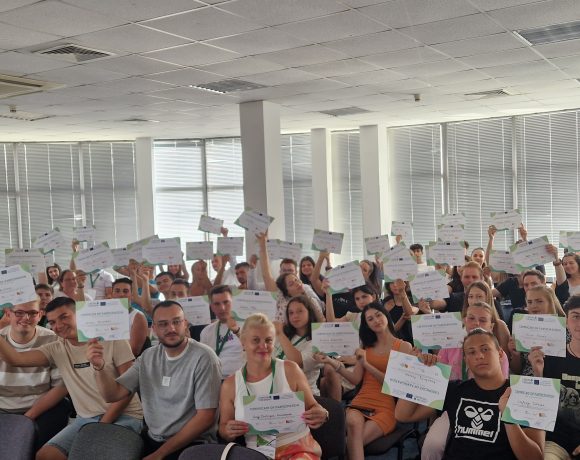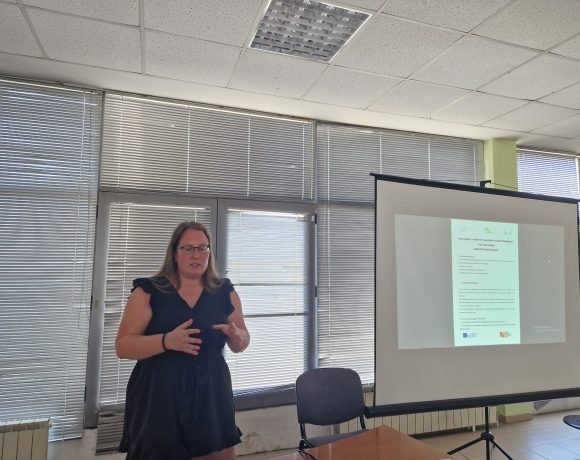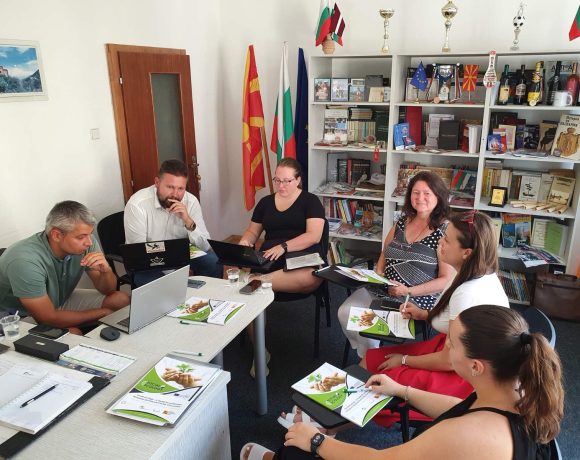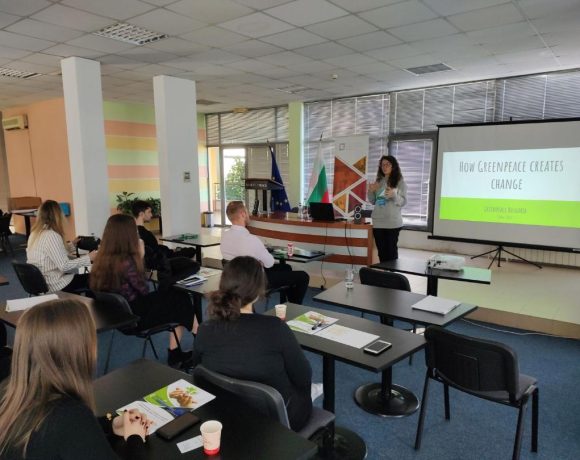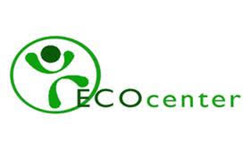About the project
Social ecology – a model for sustainable European development in the 21st century”, [2020-2-BG01-KA205-079309] is an Erasmus+ project implemented by the Bulgarian Memory Foundation, Bulgaria – Project Coordinator, and the Association for Macedonian-Bulgarian Friendship, Republic of North Macedonia & Ecocenter Alapítvány, Hungary – Project Partners.
The main objective of the project is, through an interdisciplinary approach, to develop an innovative methodology for building socio-environmental and eco-entrepreneurial knowledge and skills, to be developed and tested with 15 youth workers and 60 young people (50% of them in disadvantaged position), *contributing to their socio-educational and personal development and active civic participation, and *becoming an educational resource with free access.
- Analysis and synthesis of good European practices on social ecology and revealing the horizontal nature of eco-challenges, linking them to the social component;
- Development of an innovative methodology for social ecology applicable in formal and non-formal education;
- Incorporating digital tools into non-formal education through the creation of an online platform (in accordance with the methodology) with activities and practical exercises for positive environmental impact, which will be an Open Educationa Resource;
- Testing the methodology among young people, youth workers, students, teachers & stakeholders, encouraging their involvement & civic participation;
- Improving the level of key competences & transversal skills of the participants in the project activities, incl. future-oriented skills, initiative and creativity;
- Development of eco-entrepreneurial mindset and skills;
- Development of civic & intercultural competences;
- Stimulating the connection between research & practice in the field of social ecology;
- Enhancing the international dimension of partner organizations’ activities.
- 15 youth workers (24-30 years) – 5 from each organization;
- 60 young people (16-24) – 50 % of whom will be in the disadvantaged category due to ethno-religious /socio-economic factors.
The following 5 main groups of activities are envisaged:
1. Preparation;
2. Implementation, including:
– preparation of a Report on good European environmental practices;
– events for creating a new methodology for the development of socio-environmental and eco-entrepreneurial competences through methods of non-formal education;
– creation of a digital toolkit for practical application of the methodology-an online platform
(OER);
3. Promotion of project results;
4. Analysis of results and possibilities for their multiplication & sustainability;
5. Final report


